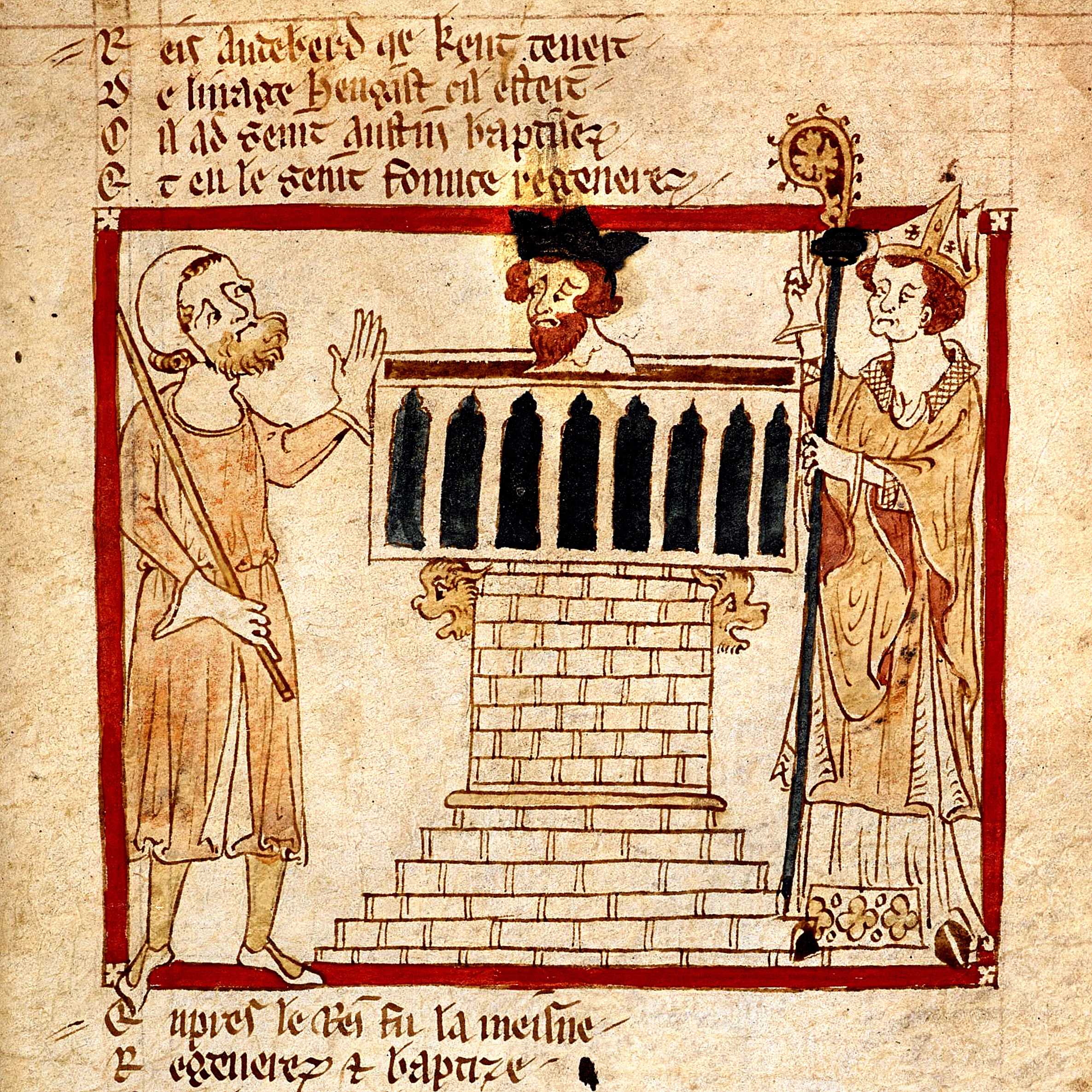 The Rune poem names two gods: Tiw and Ing. Three if you count Os which means god and describes Odin. If we set aside all the sacred trees, and we shouldn’t, we still have one more god mention: the holy king of heaven in the Year stanza, who must be the Christian god, unnamed. This Christian incursion into a poem full of non Christian deities, two named right out loud in answer to their stanza riddles, sometimes poses a different kind of riddle for Christian readers and translators. Perhaps duty bound to exalt their own, they often determine this is a Christian poem written by a Christian poet who would never allow heaven’s king to share an equal stage with other gods. This was a preference undoubtedly popular amongst Christian poets writing in Old English back in the day, so I can see the impulse. But I am here to encourage the … More
The Rune poem names two gods: Tiw and Ing. Three if you count Os which means god and describes Odin. If we set aside all the sacred trees, and we shouldn’t, we still have one more god mention: the holy king of heaven in the Year stanza, who must be the Christian god, unnamed. This Christian incursion into a poem full of non Christian deities, two named right out loud in answer to their stanza riddles, sometimes poses a different kind of riddle for Christian readers and translators. Perhaps duty bound to exalt their own, they often determine this is a Christian poem written by a Christian poet who would never allow heaven’s king to share an equal stage with other gods. This was a preference undoubtedly popular amongst Christian poets writing in Old English back in the day, so I can see the impulse. But I am here to encourage the … More
Tag Archives: Ing
Stanza 22: Ing

ᛝ wæs ærest mid east denum.
gesewen secgun. oþ he siððan est.
ofer wæg gewat wæn æfter ran.
ðus heardingas ðone hæle nemdun ᛬᛫
First he was among the East Danes
Seen and spoken of, until hereafter he and his bounty eastward
Departed over the waves, his wagon ran after;
Thus the hardy ones named the hero.
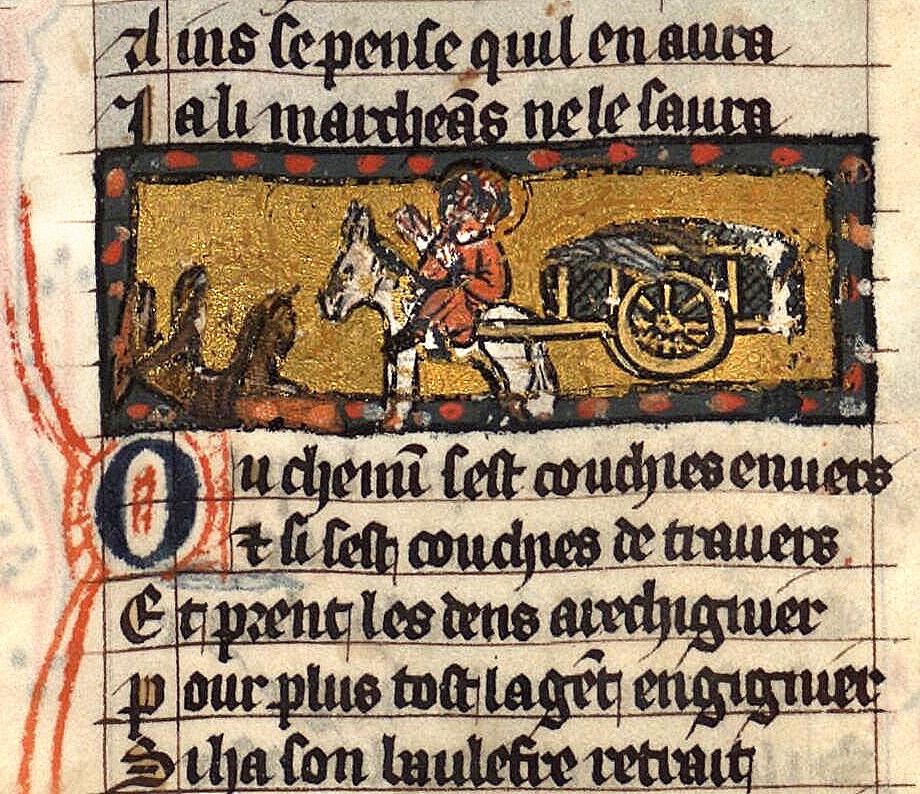
Translating Ing
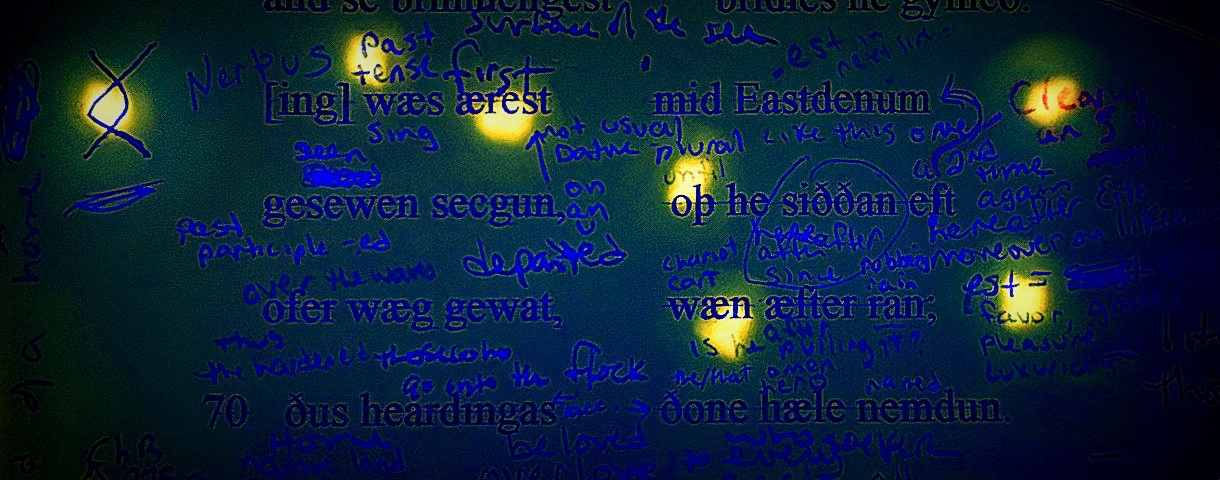 Ing is a mystery. Who is Ing? Where did he go? Why did he leave? We don’t know. You know who knows? The Rune Poem knows: the Rune Poem has the only specific intel we’ve got on Ing.
Ing is a mystery. Who is Ing? Where did he go? Why did he leave? We don’t know. You know who knows? The Rune Poem knows: the Rune Poem has the only specific intel we’ve got on Ing.
Case File: Ing
Clue: Ing was first among the East Danes. Where are these East Danes? The Rune Poem predates the Viking expansion (973-1066), so there’s only one place to look for Danes: modern Denmark and southern Sweden plus the coasts and islands thereabout. The East Danes lived in the Southern Sweden and Zealand half of things, where you can find plenty of people named after Ing: Inge Inga Ingmar Ingrid, living in places like Ingegerd, and Ingeborg. What’s Ing doing in the Old English Rune Poem? His people traveled. Just west of Denmark across the north sea to Northumbria there are also plenty Ings (Inglby Ingoe Ingram Ingham). He’s left a forest of family trees … More
Ing is for Nerþus
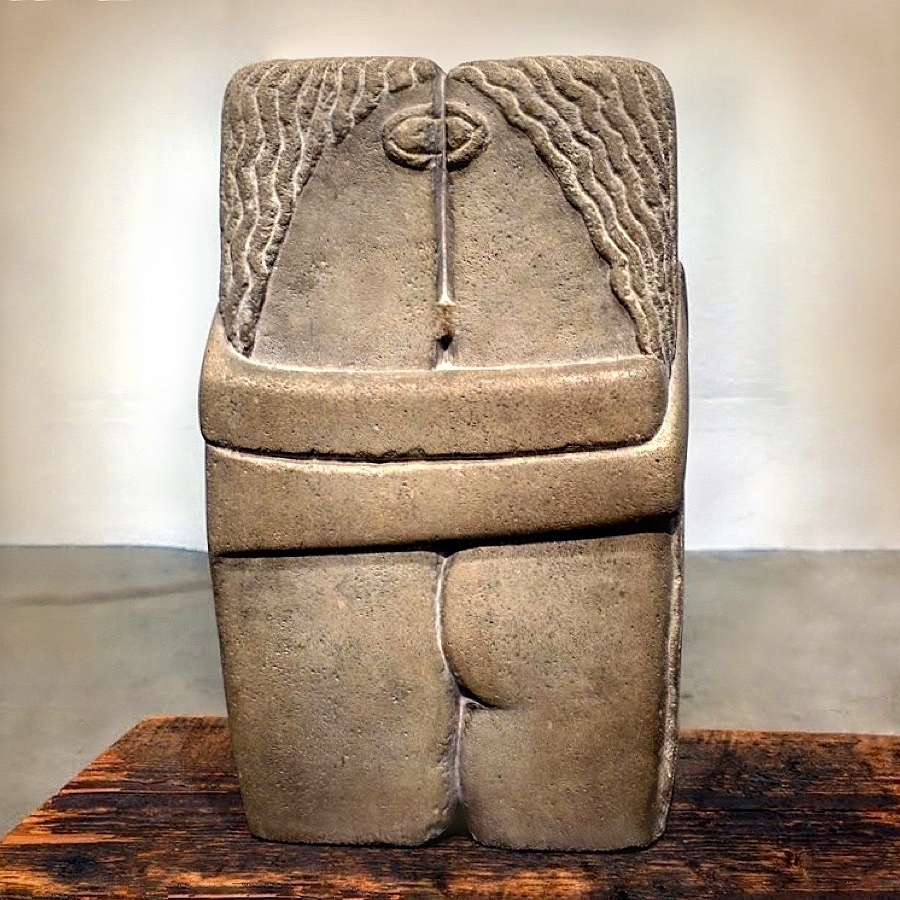 In the Old English Rune Poem, Ing is specifically masculine pronoun male. He’s a boy. But where Ing came from amongst the East Danes of what is now eastern Denmark and Southern Sweden, Ing appears to be a deity who was sometimes male, sometimes female, sometimes both at once. This is not uncommon, there are crowds of intersexed deities in world belief systems. I was going to list them. I don’t have enough space. But anywhere we look, there they are, including if we look toward Ing’s people. We have to look close, we have very little to go on.
In the Old English Rune Poem, Ing is specifically masculine pronoun male. He’s a boy. But where Ing came from amongst the East Danes of what is now eastern Denmark and Southern Sweden, Ing appears to be a deity who was sometimes male, sometimes female, sometimes both at once. This is not uncommon, there are crowds of intersexed deities in world belief systems. I was going to list them. I don’t have enough space. But anywhere we look, there they are, including if we look toward Ing’s people. We have to look close, we have very little to go on.
We also have to look at Ing’s people at the wrong times which is always tricky. Ing is called Ing in the Rune Poem, which was most likely written down in the 600’s but is probably several hundred years older than that. The runes themselves are certainly older. When Ing is called Ing in the … More
Prosperity
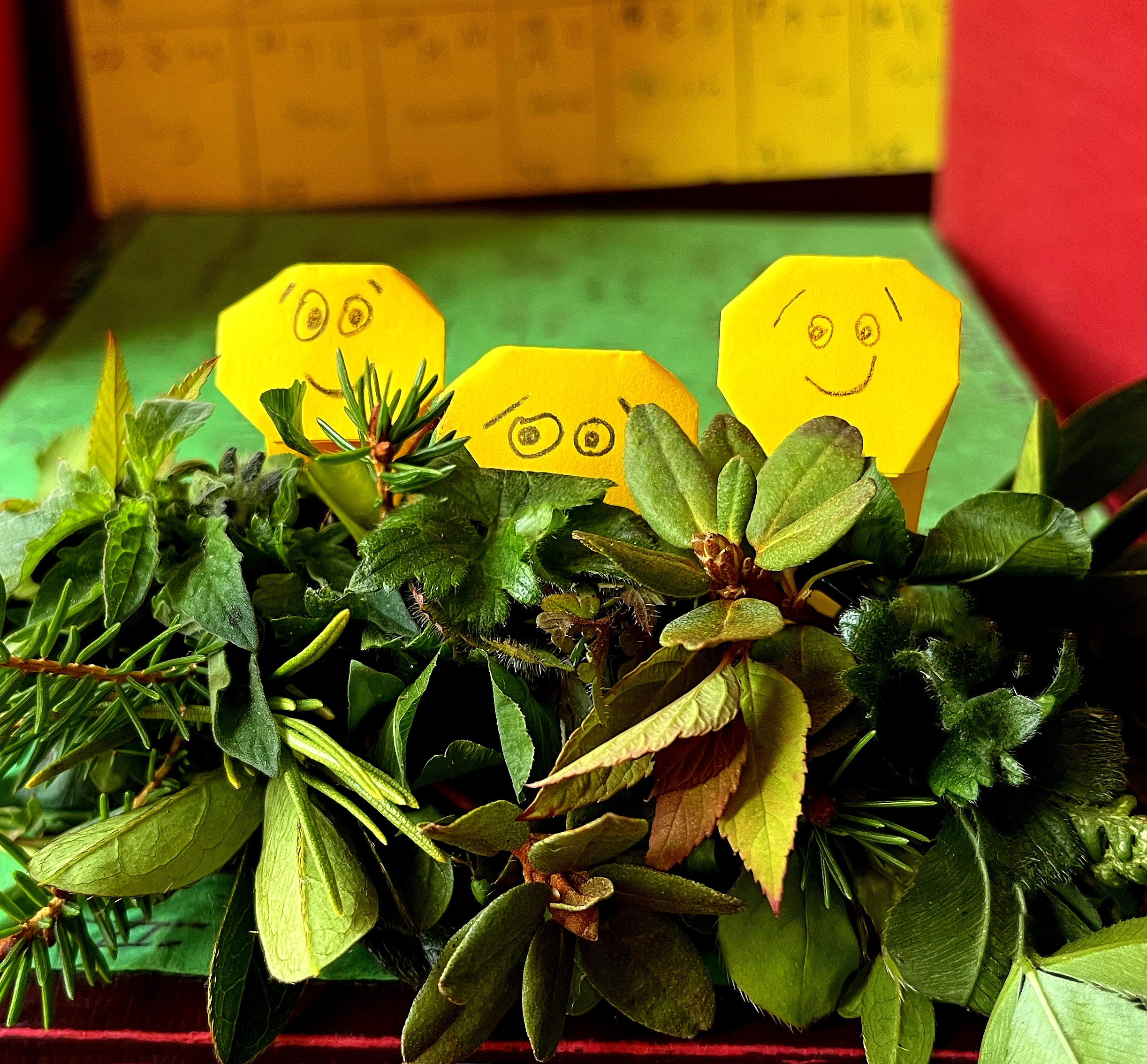 When you line up the Rune Poem stanzas and bend the line back on itself into a long U shape so the runes face each other, you get fourteen pairs. This pair, Ing and Wyn, the eighth, begins the middle half of the poem, moving toward the center which is to say the circumference. I say poem. It is a poem. It is also how people communicated with their gods, how they’d get answers to problems, find out which way the wind is blowing, complain, ask for stuff. Whatever question they might have, the Rune Poem has an answer. It’s an instruction manual for living, presented in matched pairs.
When you line up the Rune Poem stanzas and bend the line back on itself into a long U shape so the runes face each other, you get fourteen pairs. This pair, Ing and Wyn, the eighth, begins the middle half of the poem, moving toward the center which is to say the circumference. I say poem. It is a poem. It is also how people communicated with their gods, how they’d get answers to problems, find out which way the wind is blowing, complain, ask for stuff. Whatever question they might have, the Rune Poem has an answer. It’s an instruction manual for living, presented in matched pairs.
This pair, Wyn and Ing are all about abundance. Linked up together, here we have the god of prosperity who once hung around the market towns, nice fortified byrga, and we have the feeling of joy you get when all your abundance is secure … More
Ing is for Scylding
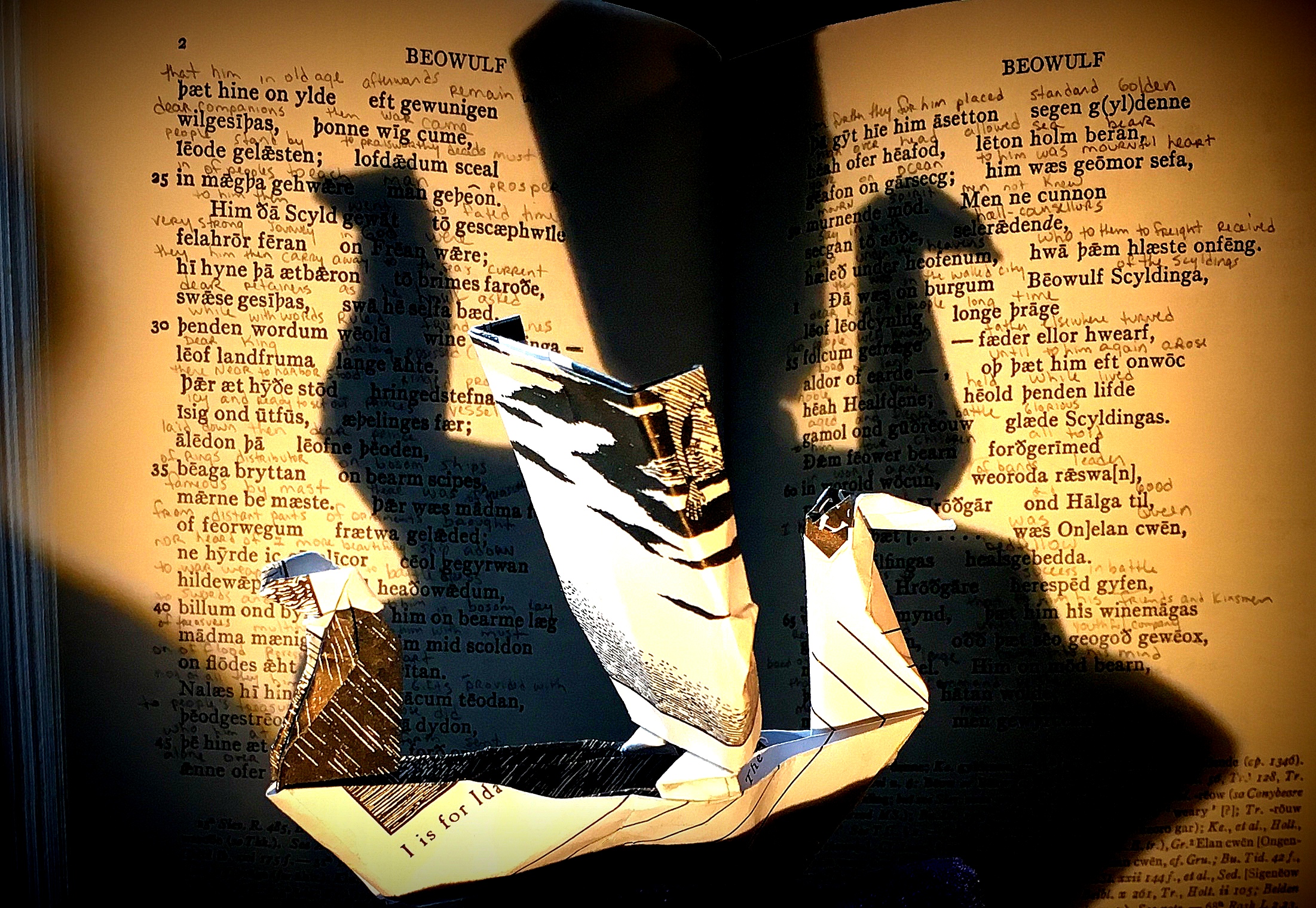 To them then Scyld went, at the fated time, on a journey full of exploits, to God. Then they carried him away to the surf on the shore, his beloved companions, as he himself asked, while he ruled with words, friend of the Scyldings. The beloved first of his land long had possession. There near to harbor stood a ringed prow, icy and ready to set out, a prince’s vessel. Then laid down the beloved chief, the giver of rings, on the ship’s bosom famous by its mast. Of treasure there was much, ornaments brought from distant parts. I had not heard of a ship more beautifully adorned with war weapons and battle dress, with blades and armor. For him, on his body lay a multitude of treasures, that with him must into the flood’s possession, far depart. They provided him with no lesser gifts than the people’s treasures, then those did, who at his … More
To them then Scyld went, at the fated time, on a journey full of exploits, to God. Then they carried him away to the surf on the shore, his beloved companions, as he himself asked, while he ruled with words, friend of the Scyldings. The beloved first of his land long had possession. There near to harbor stood a ringed prow, icy and ready to set out, a prince’s vessel. Then laid down the beloved chief, the giver of rings, on the ship’s bosom famous by its mast. Of treasure there was much, ornaments brought from distant parts. I had not heard of a ship more beautifully adorned with war weapons and battle dress, with blades and armor. For him, on his body lay a multitude of treasures, that with him must into the flood’s possession, far depart. They provided him with no lesser gifts than the people’s treasures, then those did, who at his … More
How to Skip Town
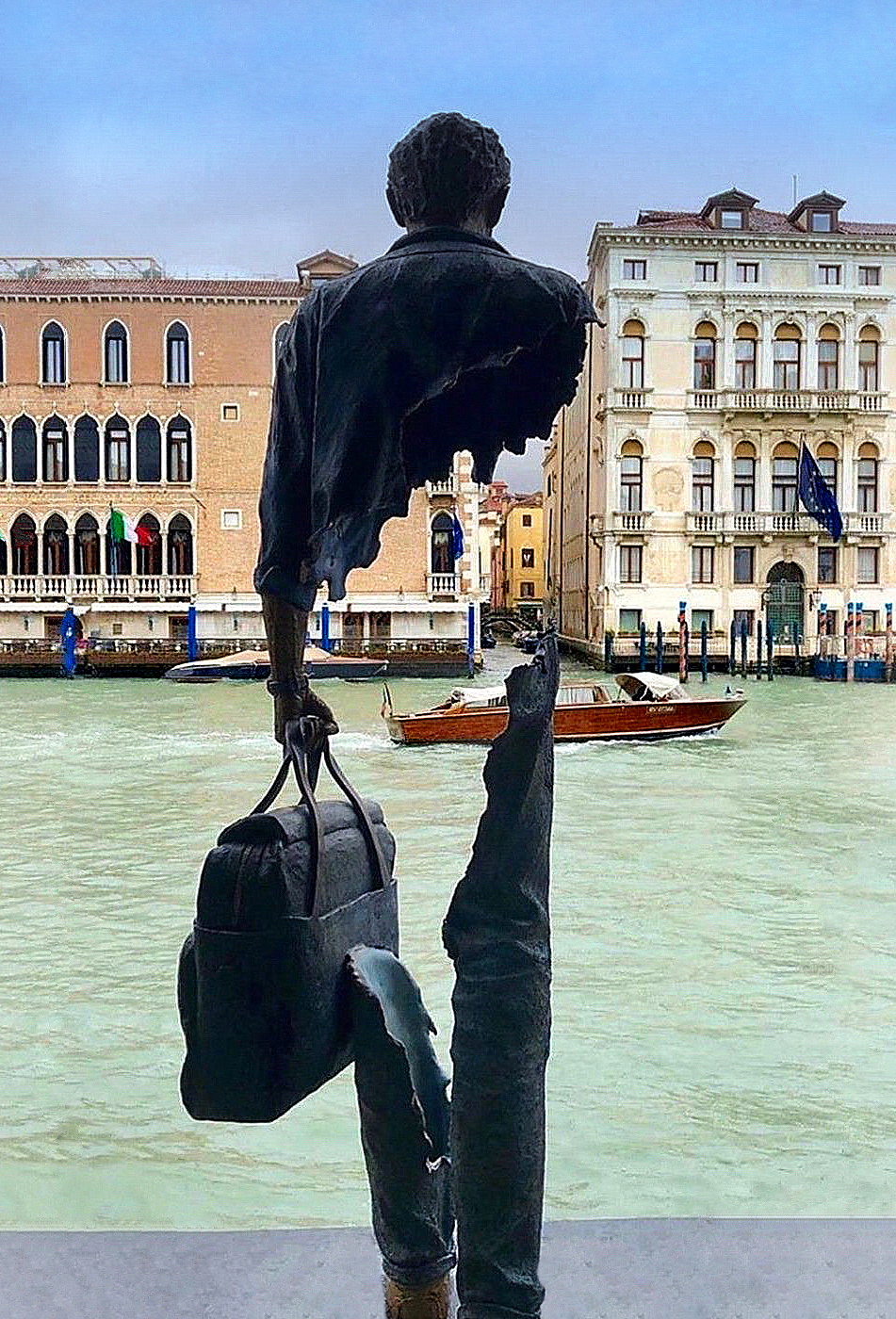 It’s time to go. It is past time. If you need to get out of here yesterday you’d better do it with an eye on the future, that knife blade of a now you balance on will cut and run, so plan fast.
It’s time to go. It is past time. If you need to get out of here yesterday you’d better do it with an eye on the future, that knife blade of a now you balance on will cut and run, so plan fast.
You don’t want to plan. You don’t care what comes next, I get it, but if something is going to come next, you’ll need to survive long enough to see it and that takes money. Bring any portable wealth you have, the smaller the better depending on your means of conveyance. Is that your car? Load it up. Fill it with anything you might regret leaving behind. Maybe we can attach a trailer or something you can pull behind you. Take what you can because you will not know your regrets until the actual future arrives. To speed that process, leave nothing, otherwise, you will quickly discover your regrets at which time … More
Rune Casting: Ing
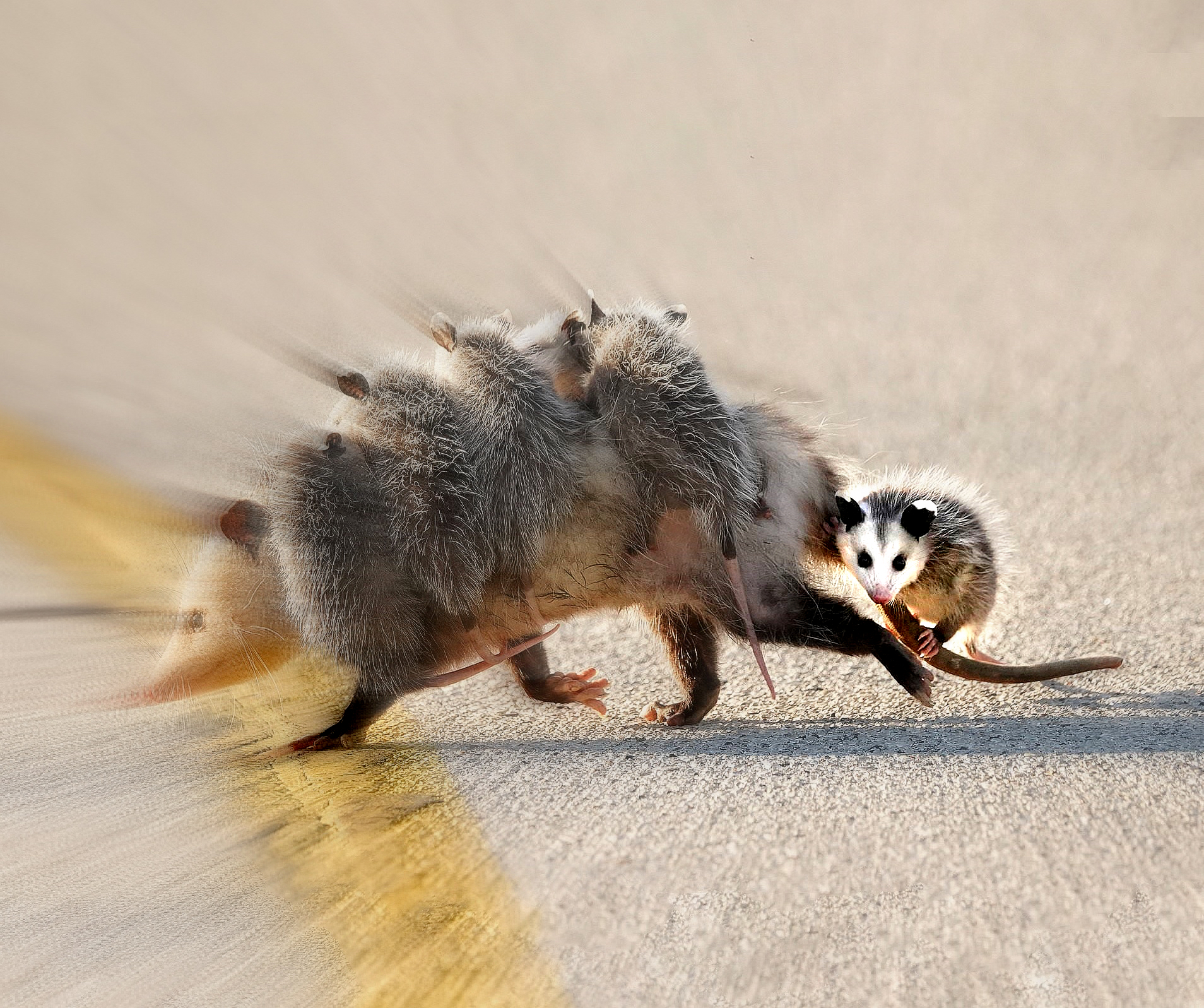 Any help you had packed up their stuff and hit the road. You are on your own. That was a powerful benefactor and hitching your wagon to that particular star was a good idea, but you are on your own now. Take stock of your remaining goods because what was once abundant will now be scarce, and you will have to work hard for what once came easily. All is not lost, greater ones have gone before you and you’ve learned a thing or two from them about prosperity. Follow them and maintain your trajectory or you’ll get stuck traveling in circles.
Any help you had packed up their stuff and hit the road. You are on your own. That was a powerful benefactor and hitching your wagon to that particular star was a good idea, but you are on your own now. Take stock of your remaining goods because what was once abundant will now be scarce, and you will have to work hard for what once came easily. All is not lost, greater ones have gone before you and you’ve learned a thing or two from them about prosperity. Follow them and maintain your trajectory or you’ll get stuck traveling in circles.
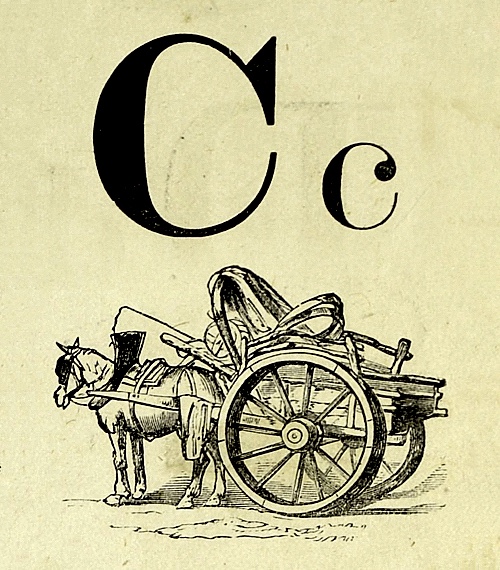
ᛝ
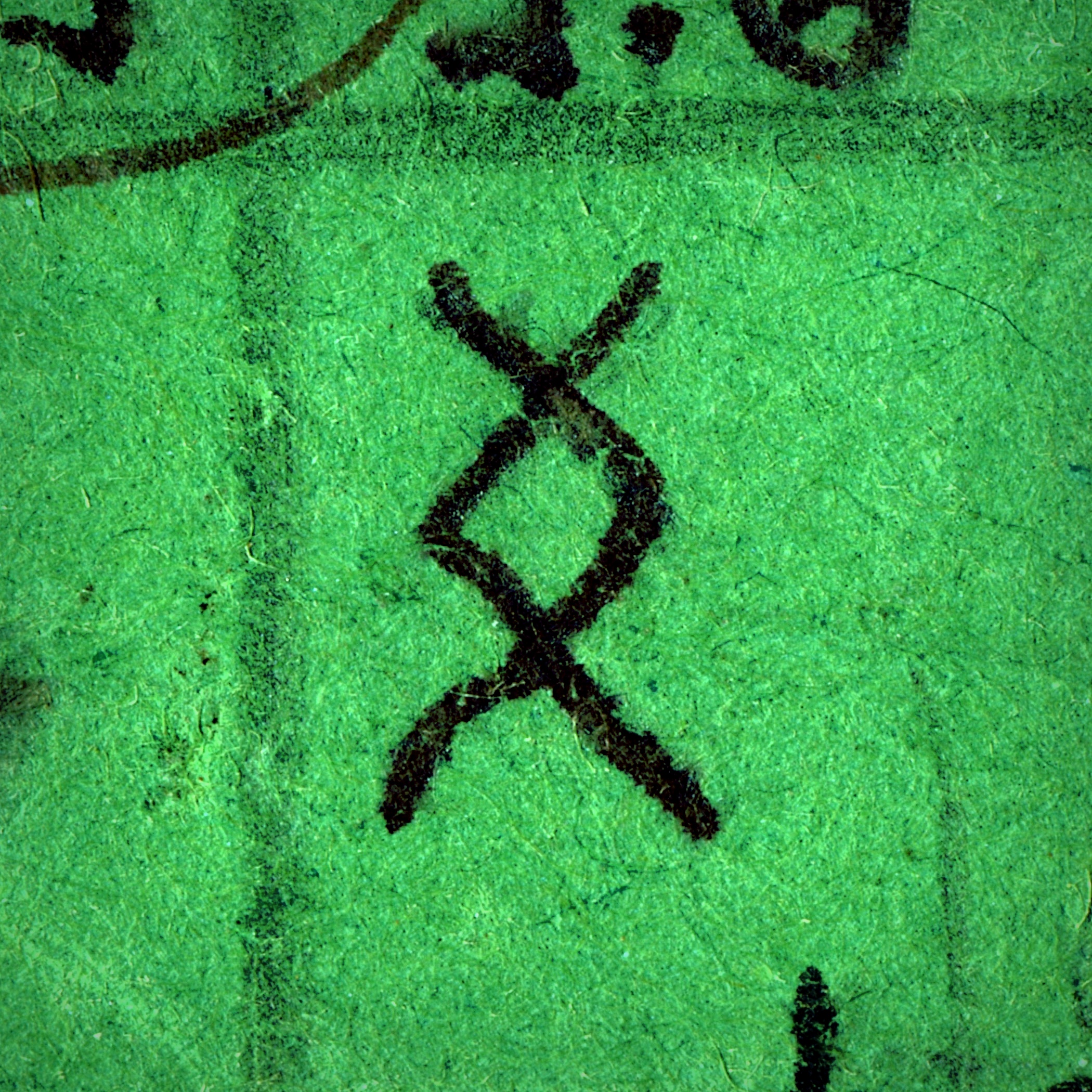
Ing was a deity of prosperity and we remember his abundance in our coins the scilling (shilling) and the feorþing (farthing). In oldest Old English Ing is a word meaning a muggy riverside meadow, the only valuable land for farming in a wild swamp.
Ing left for the east with his cart running after him like a suffix to his word, but in Old English Ing is the suffix running after feminine nouns denoting action: feding = feeding, bletsing = blessing. Ing is also a patronymic suffix used to show family groups, kinds of people or things, or anything belonging to something or someone: deorling = darling (dear-ling), georgling = a child, cyning = king, Centingas = people from Kent. Scyldings = a family name. Ing as a suffix took on more and more uses and we can find Ing actively running behind many words now.


